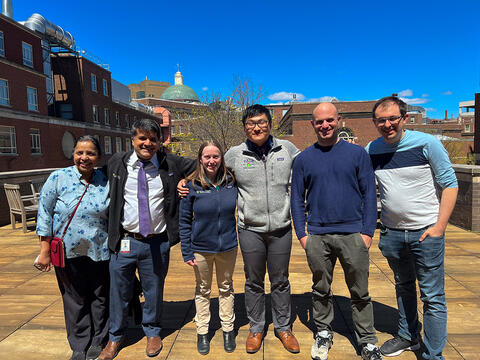
A team co-led by Seth Herzon, Milton Harris ‘29 Ph.D. Professor of Chemistry, and Professor of Pharmacology and Therapeutic Radiology, and Ranjit Bindra, Harvey and Kate Cushing Professor of Therapeutic Radiology, and Professor of Pathology at Yale School of Medicine, have discovered a new class of molecules for the treatment of drug-resistant brain cancers known as gliomas and glioblastomas.
Few treatment options exist for these highly aggressive cancers. The five-year survival rate for glioblastoma is ~5%. The Bindra–Herzon team developed new molecules that exploit a specific DNA repair defect known as “MGMT-silencing” to achieve tumor-specific cell killing.
The findings were published July 28 in the journal Science.
A summary of their breakthrough work can be found in the YaleNews article “A New Path for Treating Brain Cancer, with a Yale-Developed Compound” and in the Endpoints News press release “By Exploiting the DNA Repair System, Yale Scientists Want to Crack Chemotherapy Resistant Brain Cancer.”
Co-authors on the study include Kingson Lin, a Paul and Daisy Soros Fellow at Yale and M.D./Ph.D. student co-mentored by Bindra and Herzon, Susan Gueble, a B. Leonard Holman Pathway Fellow and M.D./Ph.D. radiation oncology resident, Eric Huseman, and Ranjini Sundaram.
These discoveries led to the founding of Modifi Bio, a New Haven biotech startup focused on curing brain cancers, which is working to move the molecules to the clinic.
Learn more about the Herzon Lab.